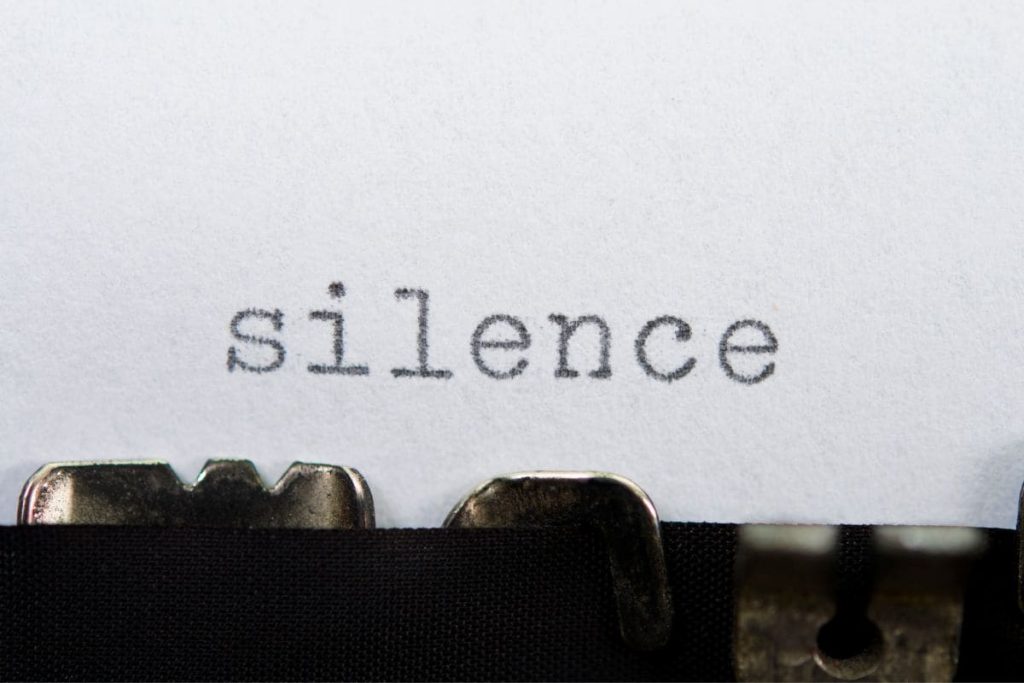Introverts are often misunderstood in social situations, as their silence may be perceived as disinterest, awkwardness, or even unfriendliness. However, there are many underlying reasons for an introvert’s quiet demeanor that go beyond these stereotypes.
In this article, we will discuss some of the key factors contributing to an introvert’s silence and how understanding these nuances can foster better communication and relationships.
As opposed to extroverts who generally thrive in social situations and draw energy from engaging with others, introverts are more introspective and typically recharge through alone time.
Consequently, their thought processes and communication styles differ greatly from their extroverted counterparts. Acknowledging this fundamental distinction can greatly improve how we interact with introverts and give us a better understanding of their motives for not talking in certain situations.
Reasons For Silence

Let’s explore some of the most common reasons an introvert isn’t talking, be it due to social anxiety, the need for deeper connections, or simply preferring to listen and observe.
Understanding these motivations can help us create more inclusive and comfortable environments for both introverts and extroverts alike, ultimately fostering stronger and more meaningful connections between people of varying personality types.
Processing Thoughts
Introverts often take time to process thoughts before speaking. They prefer to think things through internally, ensuring their ideas are well-formed before sharing them with others.
Need For Personal Space
Introverts value their personal space and may choose to remain quiet to maintain a sense of boundaries. This allows them to feel more comfortable and focused in social situations.
Social Anxiety
Some introverts may experience social anxiety, which can make speaking in social settings difficult. They may worry about being judged or saying the wrong thing, leading to silence.
Energy Conservation
Introverts tend to conserve their energy in social situations. Engaging in conversation can be draining, so they might opt for quiet observation to save energy.
Listening And Observing
Introverts are often great listeners and observers. Their silence may indicate that they are paying close attention to the situation, absorbing information, and analyzing their surroundings.
They’re Shy
Shyness can be a factor in an introvert’s silence. They may feel uncertain or self-conscious, leading them to remain quiet in social situations.
They’re Nervous
It’s normal for introverts to feel nervous in certain social settings. This nervousness may prevent them from speaking up, as they focus on managing their feelings.
They’re Not Interested
Lastly, introverts may simply not be interested in the conversation topic or may have little to contribute. Their silence could indicate a preference to disengage from the discussion.
Ways To Encourage Communication

Patience And Understanding
One of the most important aspects of encouraging communication with introverts is to show patience and understanding. Give them time and space to express themselves without pressure. Let them know that their thoughts and feelings are important, even if they might take longer to share them.
Creating Comfortable Environments
Introverts often feel more comfortable talking in quieter and more intimate settings. So, try to create an environment that minimizes loud noises and distractions. This might mean choosing a quiet location for your conversation or turning down the volume on music or other background noise.
Personal space is also crucial for introverts, so avoid crowding them or standing too close during conversations. Ensure they have a comfortable seating option where they can relax and express themselves freely.
Embracing Nonverbal Cues
It’s important to remember that not all communication is verbal. Introverts may communicate more through nonverbal cues, such as body language, facial expressions, or even writing. Be open to these forms of communication and pay close attention to them, as they can provide valuable insights into the introvert’s thoughts and feelings.
You can also encourage introverts to share their thoughts in writing, even in a shared document, as they might feel more comfortable communicating their thoughts and ideas through written words.
The Bottom Line

In conclusion, introverts may sometimes appear quiet or reserved, but their silence can stem from various reasons. It is essential to recognize and respect their personal boundaries, as well as understand their unique communication styles.
Common reasons for introverted silence include:
- Recharging their energy
- Processing information
- Being a natural listener
- Feeling anxious or awkward in social situations
It is crucial not to force introverts into situations that make them uncomfortable or assume that silence implies disinterest. Instead, fostering a supportive environment that accommodates diverse communication styles can help introverts feel more at ease.

